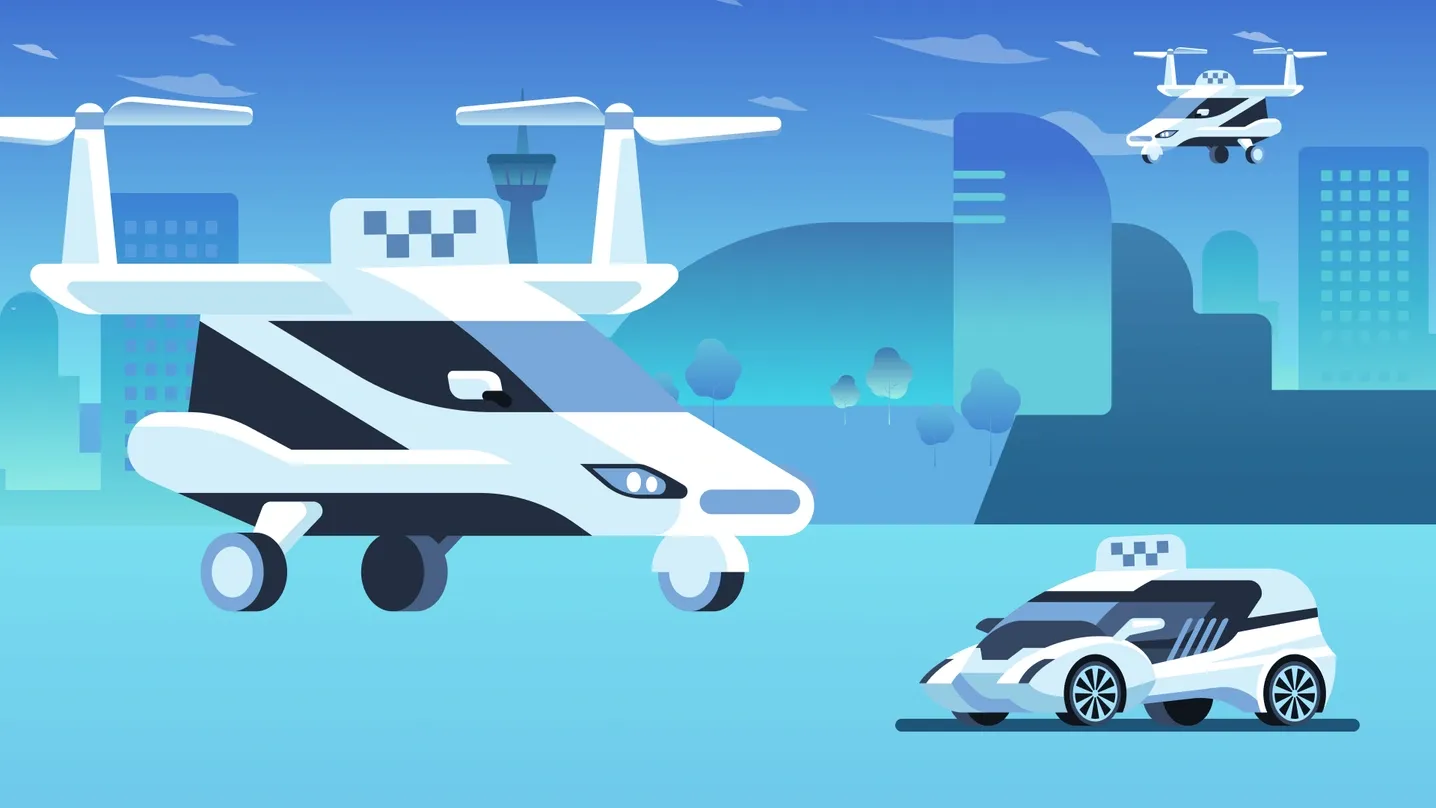As we usher in 2024, the landscape of the ride-hailing and taxi industry continues to evolve, shaped by technological advancements, changing consumer preferences, and ongoing efforts to create a more sustainable and efficient transportation ecosystem.
In this article, we will explore the emerging trends of taxi and ride-hailing businesses and how they are becoming more prominent in the year 2024.
Electric vehicles

Electric vehicles have been with us for a while. In the past three years, however, we’ve seen exponential growth in electric vehicle use worldwide. In the 1st quarter of 2023, 2.3 million electric vehicles were sold worldwide. By the end of the year, the IEA forecasted 14 million new electric cars; compared to 2022, this is a 35% growth.
The taxi and ride-hailing industry is following the trend and is expected to exacerbate it. In response to the global push towards sustainability, ride-hailing companies are increasingly incorporating electric cars into their fleets. Among Onde partners, we have Saytaxi in Albania that opted for EVs and observed a 10x increase in their orders, and ZEV (“zero-emission venture”) - a mobility service in Taiwan.
Choosing electric vehicles not only aligns with environmental goals but also helps companies reduce operational costs in the long run. Expect to see more charging infrastructure investments and incentives for drivers to make the switch to electric in 2024.
Autonomous vehicles

While fully autonomous vehicles may not be ubiquitous in 2024, the groundwork for their integration is certainly being laid. Companies are investing heavily in autonomous vehicle technology, conducting extensive testing, and forming strategic partnerships. For example, Aurora acquired Uber’s Advanced Technologies Group (ATG) to accelerate the development of autonomous vehicle technology. In addition to acquiring ATG, Aurora also announced a partnership with Uber that connects self-driving technology to the ride-hailing platform.
The prospect of self-driving taxis promises increased safety, reduced labor costs, and improved efficiency. However, regulatory challenges and public acceptance remain significant hurdles to overcome.
Multi-modal integration

Ride-hailing services are expanding beyond traditional car rides, with an increasing focus on multi-modal integration. In 2024, expect to see ride-hailing platforms offering a seamless combination of services, including bikes, scooters, public transit, and even short-distance flights. This integrated approach aims to provide users with a range of transportation options, allowing for more flexibility and convenience in their daily commutes.
The giants of ride-hailing businesses such as Uber, Lyft, and Bolt have already embraced multi-modal integration. In addition to traditional ride-hailing services, ride-hailing app users in many cities can access information and book various transportation options, including electric bikes, scooters, and public transit. The app provides real-time information on public transportation schedules and allows users to plan multi-modal routes.
At Onde, we make it possible for such solutions to operate smoothly and efficiently: our technological all-in-one platform is easily adjusted for all and any of the service types.
Enhanced safety measures

In response to growing concerns about passenger safety, ride-hailing companies are implementing advanced safety features. This includes background checks for drivers, customer insurance, in-app panic buttons, reports, and driver and passenger ratings. Many ride-hailing companies, and Onde as a ride-hailing technical platform, also provide the “Follow my ride” feature that lets friends and family see where the car is taking the passenger, and in-app chats for information security. With in-app chats, the drivers and customers don’t have to call each other and discover personal information.
In the upcoming year, it’s possible that ride-hailing companies will introduce AI-driven monitoring systems more widely, and will pay more attention to information security.
Rise of Super Apps

Super Apps - apps that go beyond ride-hailing and offer a range of on-demand services - are rapidly gaining traction around the world. These platforms allow users to access everything from food delivery and grocery shopping to pharmacy orders and more - all through a single app. This trend not only increases convenience for users but also opens up new revenue streams for ride-hailing companies looking to diversify their offerings.
Companies such as Uber and Bolt have been early adopters, integrating food delivery alongside their ride-hailing services. In Southeast Asia, Grab has gone even further, offering digital payments and financial services as well as transport and food delivery. Similarly, Gojek has become a true super-app in the region, offering a range of on-demand services from courier and food delivery to ride-hailing.
Looking ahead to 2024, more taxi companies are expected to follow suit and add food and grocery delivery to their services. The online food delivery market, which includes both food and grocery delivery, is forecast to reach a staggering $1.20 trillion in 2024. In addition, the grocery delivery market alone is forecast to grow by 20% by 2025.
To help our partners stay competitive and meet this growing demand, Onde has partnered with Playfood, a SaaS solution designed for restaurants, retail chains and entrepreneurs - whether they already have a taxi business or want to start their own food delivery service. With our joint Super App solution, you can now combine multiple services into one powerful platform, ensuring you don't get left behind in the Super App revolution.
From electric and autonomous vehicles to multi-modal integration and super apps, the sector is embracing innovation to meet the evolving demands of consumers. Navigating these trends will not only determine the success of individual companies but also shape the future of urban mobility on a global scale. As the industry continues to adapt and innovate, users can look forward to a more sustainable, efficient, and personalized transportation experience in the years to come.
Like the article? Share it with your friends!



